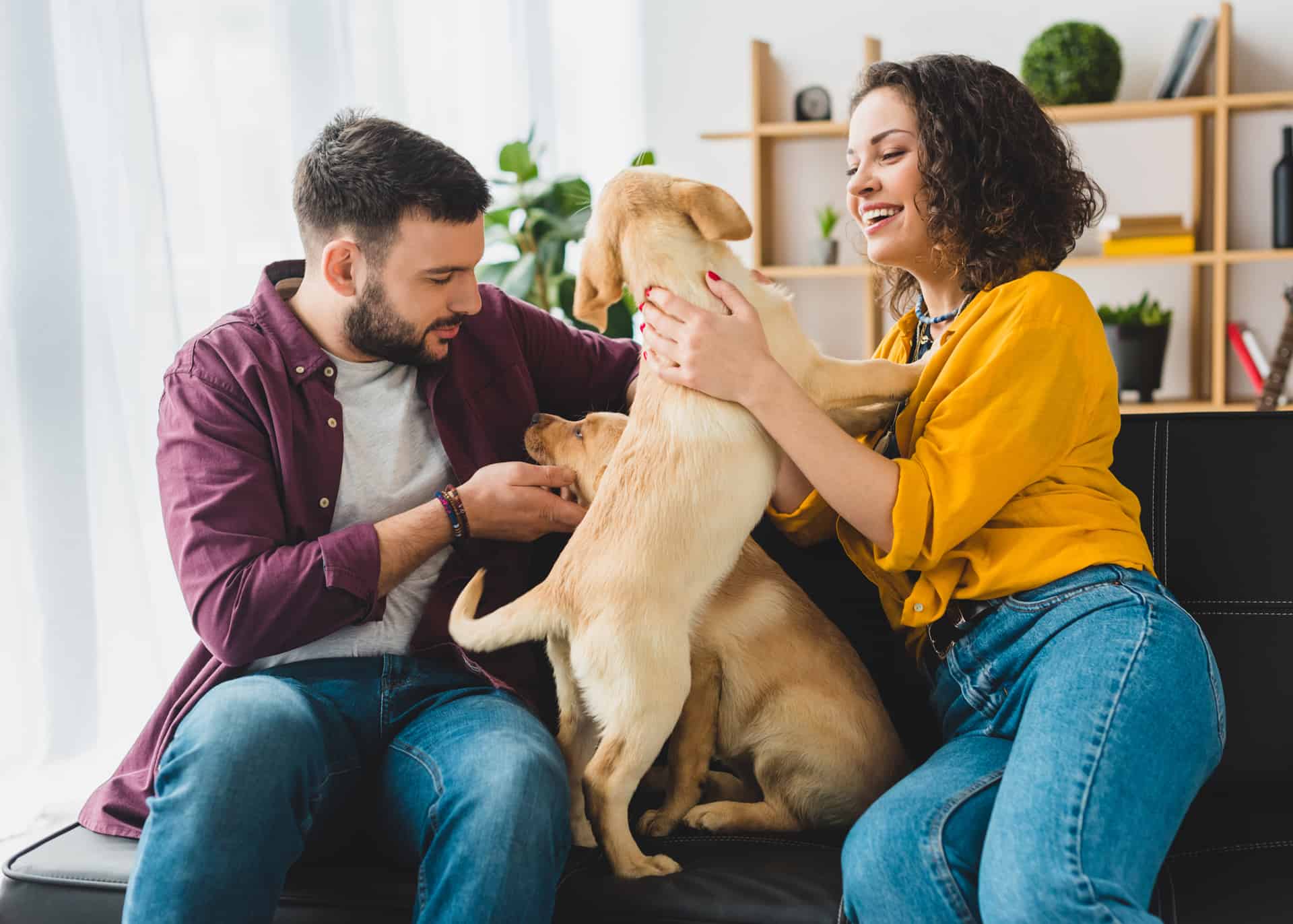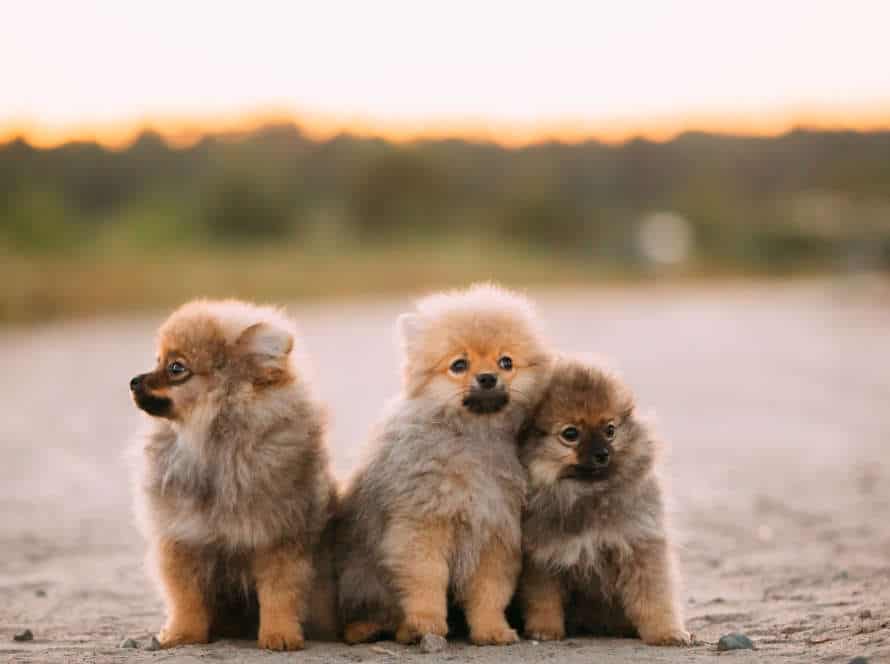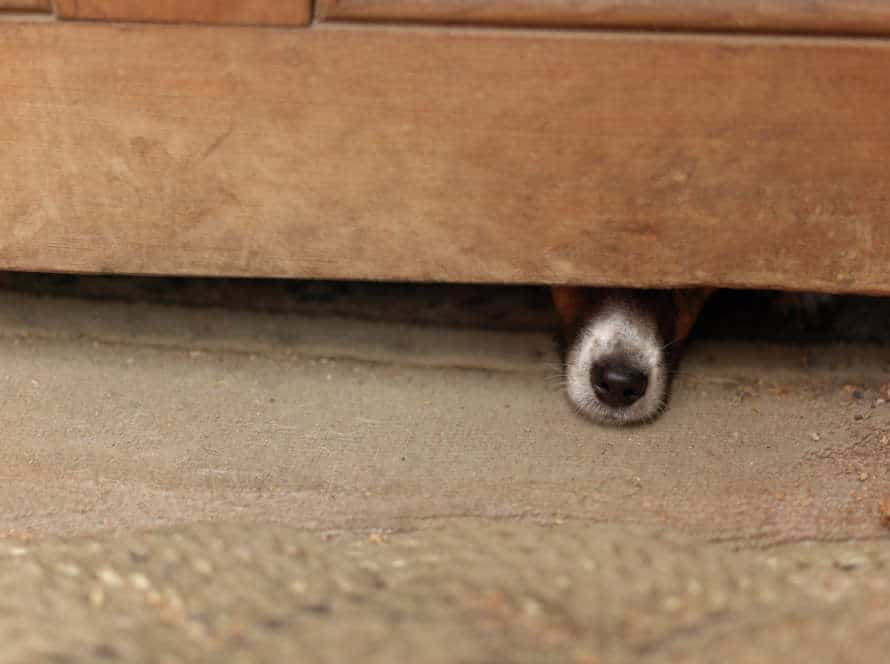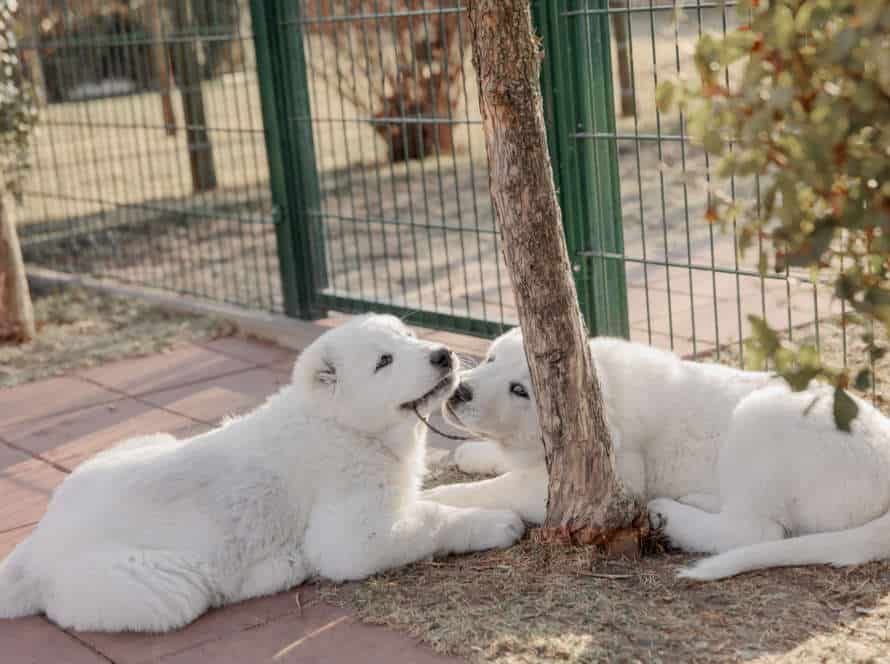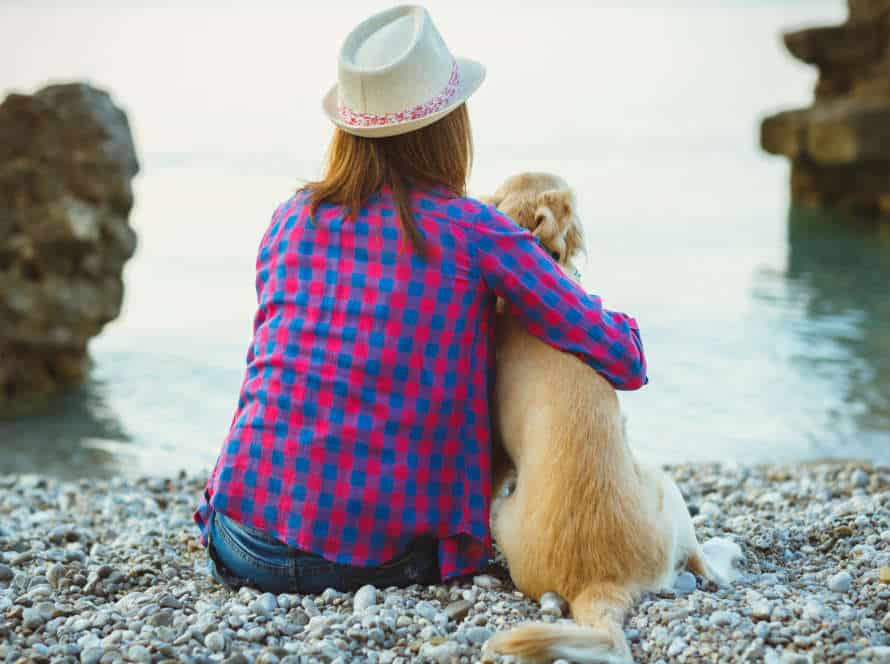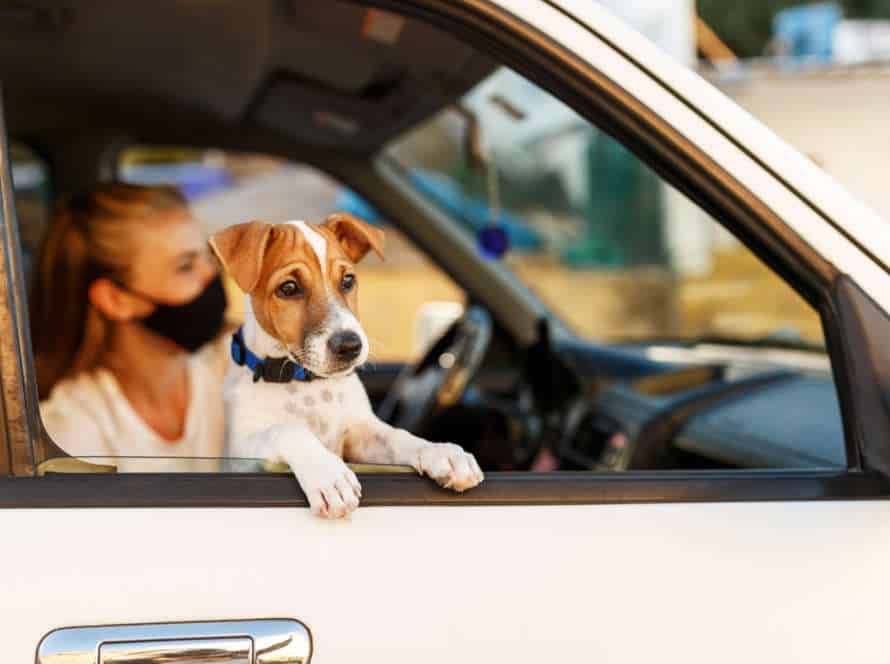Managing Overexcitement in Playful Puppies
Managing Overexcitement in Playful Puppies is super important! To make sure they are safe and content, as well as to stop them from being naughty, here are some tips:
- Exercise Regularly: A pooped pup is a relaxed pup. Make sure your pup gets enough exercise to burn off any extra energy.
- Consistent Training: Teach your pup basic commands like ‘sit’, ‘stay’ and ‘come’ and practice them often.
- Interactive Toys: Stimulating toys like puzzle toys and treat dispensers can help stop overexcitement.
- Avoid Overstimulation: Don’t let your pup play too rough or be around too much noise.
- Time-Outs: If your pup is too overexcited or misbehaving, give them a few minutes in a peaceful room for a time-out.
Remember, managing overexcitement needs patience and commitment. But, with time and effort, you can help your furry pal be a good, cheerful companion.
Understanding Overexcitement in Puppies
Puppy overexcitement is a common problem. It appears as very energetic and happy behaviour, which can cause dangerous or unwanted situations. To tackle this, we need to identify what’s causing it. Let’s get a better understanding of why puppies become overexcited, and how to manage it.
Causes of Overexcitement in Puppies
Puppies can become overexcited for various reasons. It’s important to know what causes the excitement. Common causes are:
- Environmental triggers – loud noises, new places, and unfamiliar people can all be stimulating.
- Lack of exercise – puppies need to burn off energy through play. Without that, excitement can become too much.
- Inconsistent training – not having clear rules and boundaries can lead to erratic behavior.
To manage overexcitement in puppies, obedience training, positive reinforcement, and enough physical and mental stimulation should be used.
The Importance of Managing Overexcitement in Puppies
Puppies may act destructively when overexcited, which is why owners must learn to manage it.
It’s natural for them to be playful and energetic. But when they become over-the-top excited, they can start jumping, nipping, and scratching.
Redirecting their attention to an appropriate activity is a great way to manage overexcitement. If they start to jump or bite, give them a chew toy.
Consistency in routines and plenty of exercise/mental stimulation also help burn off excess energy and reduce the chances of them becoming too excited.
And don’t forget to remain calm when they’re overexcited – reward them for calm behavior and redirect their focus.
Recognizing Signs of Overexcitement in Puppies
Puppies often get overexcited. It can show as barking, biting, jumping, or hyperactivity.
Here are signs to look out for:
- Panting and drooling excessively.
- Running and jumping frantically.
- Excessive vocalization – barking and whining.
- Doing destructive things – chewing and digging.
- Nipping or biting.
To handle your puppy’s overexcitement, you need to know the cause and give them suitable activities. Play sessions, walks, and mental stimulation games, suited to their age and breed, may help. Train them in impulse control and how to be calm. Remember to be patient and consistent. If needed, get help from a professional trainer. It’s key to create a safe and positive atmosphere for your puppy to develop and learn. Managing overexcitement is an important part of that.
Techniques for Managing Overexcitement in Puppies
Puppies get excited when they play. But too much excitement can be hard to control and even dangerous. Thankfully, there are ways of managing it. This article tells you how to use these techniques to keep puppies calm and in check.
Physical Exercise for Puppies
Physical exercise is essential for puppy care. It can help manage overexcitement and playfulness. Here are some useful techniques:
- Fetch: Play fetch with a ball or toy. This stimulates their chasing instinct and gives them an energy outlet.
- Tug-of-War: Great for bonding but set boundaries and rules.
- Leash Training: Provides structured exercise, socialization and obedience training.
Pro Tip: Exercise your pup before training or discipline. Keeps them calm and focused.
Mental Stimulation for Puppies
Mentally stimulating your pup during playtime is a must! Here are some tips to help you manage their energy:
- Puzzle Toys: Hide tasty treats in puzzle toys to keep your pup entertained and mentally stimulated.
- Interactive Play: Play interactive games like hide and seek or fetch with your pup. This will help them burn off energy in a controlled setting.
- Training Sessions: Incorporate short training sessions into playtime to reinforce good behavior and stop overexcitement.
- Timeouts: Give your pup a break and timeouts to calm them down if they become too excited.
Remember, overexcitement in puppies is normal. But, it’s essential to manage their energy, to avoid destructive behaviors and create a safe and happy environment for both you and your furry friend!
Training Techniques for Puppy Obedience
Puppies are often so playful and curious that it can be hard to manage them. But with the right training methods, you can teach them to obey commands and be more obedient. Here is how to manage pup overexcitement:
- Exercise – This is a great way to keep puppies from getting too excited. They need physical activity and mental stimulation, like puzzles, treat dispensers, and obedience training.
- Positive reinforcement – Show your pup when they do something good and reward them with a treat or play time. This will make sure they learn what is expected of them.
- Timeouts – If your pup’s excitement is out of control, put them in a quiet room with their bed or crate. This will give them a chance to calm down.
By using these techniques, your pup will soon be able to better control their excitement and be an obedient pup.
Preventing Overexcitement in Puppies
Puppies often get too excited during playtime! This can be seen through jumping, barking too much, biting, not doing what they’re told, and other misbehaving. Controlling overexcitement in puppies isn’t always easy, but there are strategies that could help. Let’s discuss how to manage overexcitement in puppies.
Consistent Schedules and Routine
A consistent routine is vital for keeping your pup’s enthusiasm in check. Here’s how to make one:
- Set Meal Times: Have regular mealtimes to control your pup’s energy and prevent excitement due to hunger.
- Exercise Periods: Plan daily exercise sessions so they can use their energy properly, and avoid overstimulation from all that built-up energy.
- Crate Training: Get a crate so your pup has a safe space to rest, sleep, and feel secure when they’re overstimulated.
- Training Sessions: Set regular training sessions to teach your pup boundaries, commands, and expectations. This gives structure and consistency in their life, preventing overexcitement from confusion and inconsistency.
By giving your pup a regular routine, they’ll feel secure and in control, which reduces their overexcitement and encourages better behavior.
Limiting Stimulating Environments and Situations
To stop overexcitement in puppies and regulate their impulsive behavior during playtime, limit stimulating environments and situations. These tips can help you manage it:
- Give your pup a tranquil and predictable home with no sudden movements, loud noises or bright lights. This helps it stay tranquil.
- Keep play times short but regular to prevent boredom and burnout.
- Try using toys that use your puppy’s mind, such as puzzle toys or interactive toys, instead of ordinary playthings that can make it overexcited.
- Take your pup for walks often to reduce restlessness and give it a way to use up energy.
By following these tips, you can have a playful and well-behaved pup without the overexcitement.
Reward-Based Training for Good Behavior
Reward-based training is a great way to control overexcitement in puppies. It encourages them to repeat good behavior by rewarding it.
Here are some tips to use reward-based training:
- Give high-value treats like boiled chicken or cheese to reward good behavior.
- Use clicker training to mark and reward good behavior straight away.
- Organize playdates with other puppies or well-behaved dogs, to help your puppy learn good social skills.
- Keep playtime short, to avoid overexcitement or exhaustion.
With consistent training and positive reinforcement, your puppy will learn good behavior and have fun with their friends!
Dealing with Overexcitement in Playtime
Playtime for puppies is vital for growth and development. But, overexcitement can cause bad behavior. So, owners must learn how to manage the pup’s enthusiasm. This post will provide ideas on how to keep your pup engaged and learning during playtime. Strategies to manage overexcitement will also be discussed. Have fun and stay safe!
Identifying Trigger Behaviors
Puppy playtime can get too wild, leading to bad behaviors and accidents. Spotting trigger actions can help you control your puppy’s excitement and make sure they’re safe and having fun.
Common triggers include jumping, a lot of barking, biting, and rough play. Here are tips to help:
- Stick to a routine so your pup can look forward to playtime.
- Praise calm behavior and give rewards.
- Bring their focus to toys or something else when they start a trigger.
- Give breaks when they get too active and help them relax with petting or a break.
Controlling over-excitement when playing can help your puppy develop good habits and stop bad behaviors.
Redirecting Your Puppy’s Energy
Redirecting your pup’s energy is a great way to manage too much excitement during playtime. Here’s how:
- Provide toys – give your puppy toys to play with to direct their energy from jumping or biting.
- Train – teach basic obedience commands to show when playtime is done. For example, “sit” or “stay“.
- Exercise – a pooped pup is a good pup. Make sure your puppy gets enough exercise every day to reduce energy during playtime.
- Timeouts – use a timeout if your pup gets too excited or aggressive. This’ll help them learn limits and proper behaviour.
By redirecting your puppy’s energy, you can have fun and safe playtime while avoiding bad behaviour. Pro tip: Always watch your puppy during playtime, and never leave them alone with objects that could be choking hazards.
Encouraging Calm Behavior in Playtime
Playtime is super important for puppies. But, overexcitement can lead to bad habits. To help manage this, you need to encourage calm behavior during playtime. Here are some tips:
- Set boundaries – like no jumping or biting. Keep reinforcing these rules for calm behavior.
- Take breaks – puppies get overstimulated quickly. Take regular breaks to give them time to chill.
- Calming techniques – like deep breathing and relaxing music, could help create a calm atmosphere.
- Provide distractions – give them toys and other things to keep their minds busy.
- Reward calm behavior – praise and reward when they lie down or sit quietly.
Frequently Asked Questions
Q: How can I manage my playful puppy’s overexcitement during playtime?
A: One effective way to manage a playful puppy’s overexcitement during playtime is to establish boundaries and rules. For example, you can teach your puppy a “settle” command to help them calm down and relax during play breaks.
Q: Is it normal for puppies to get overexcited during playtime?
A: Yes, it is normal for puppies to get overexcited during playtime. However, it is important to manage their behavior to prevent accidents or injuries.
Q: What are some signs of overexcitement in puppies?
A: Some signs of overexcitement in puppies include excessive barking, jumping, biting, running in circles, and not responding to commands.
Q: How can I prevent my puppy from becoming overexcited during playtime?
A: To prevent your puppy from becoming overexcited during playtime, you should provide them with plenty of exercise and mental stimulation. You can also try breaking up playtime into shorter sessions to prevent your puppy from becoming too tired or bored.
Q: Should I punish my puppy for being overexcited during playtime?
A: No, you should not punish your puppy for being overexcited during playtime. Punishment can cause fear and anxiety in puppies, making the problem worse. Instead, use positive reinforcement and reward good behavior.
Q: When should I seek professional help for my puppy’s overexcitement?
A: If your puppy’s overexcitement is causing harm to themselves or others, or if they are not responding to training, you should seek the help of a professional trainer or behaviorist.

